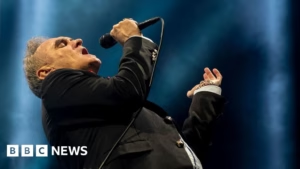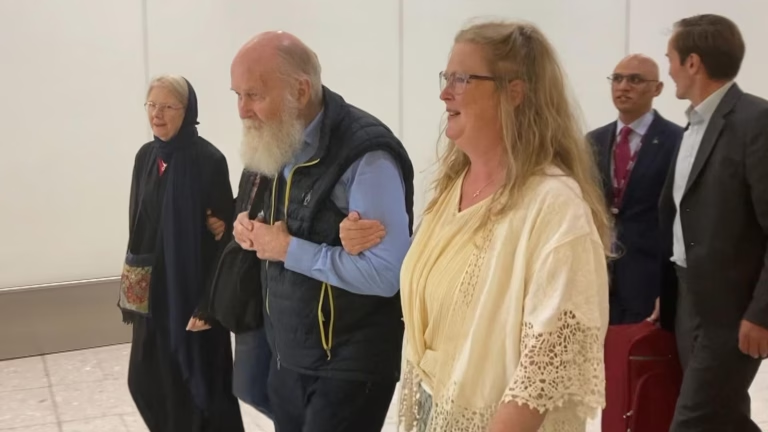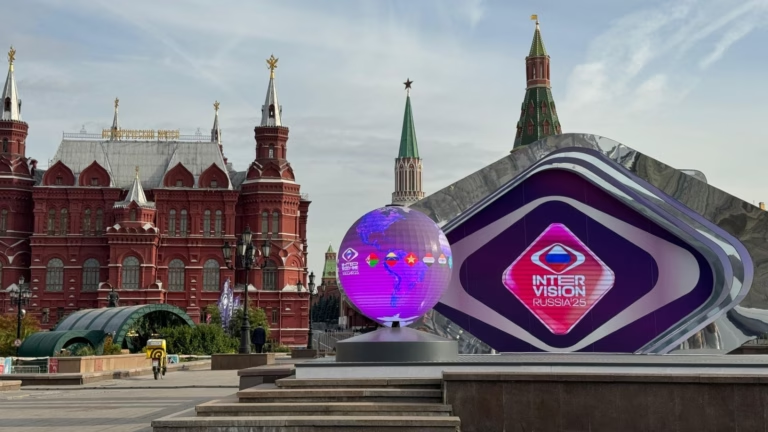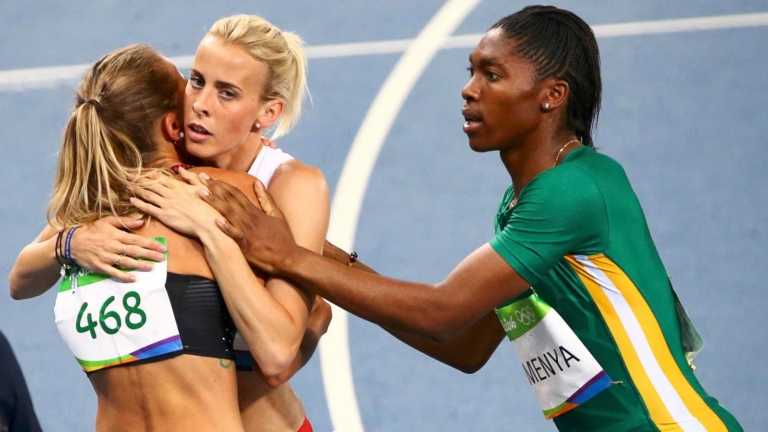However, politics has always been interwoven with the contest, despite the European Broadcasting Union (EBU)’s insistence that it maintains a politically neutral stance.
Various countries have pulled out or been banned in the past – the most notable case being Russia in 2022, just days after its invasion of Ukraine.
Now, controversy has mounted once again, with countries and broadcasters threatening boycotts and political tensions running high amidst the ongoing conflict between Israel and Palestine.
In the last two years, protests and disputes have surrounded Israel’s participation in the event, with concerns voiced by host cities Basel, Switzerland, this year, and Malmo in Sweden in 2024. Tensions have already risen ahead of next year’s ceremony in Vienna, Austria.
Earlier this month, Irish broadcaster RTE made an announcement: it will boycott the competition if Israel is allowed to take part. The Netherlands and Spain quickly followed suit, with other countries, including Slovenia and Iceland, expressing similar concerns over Israel’s ongoing actions in Gaza following the attack by Hamas on southern Israel on 7 October 2023, which claimed over 1,200 lives.
The Eurovision Song Contest Reference Group, the competition’s governing body, has extended the deadline for broadcasters to confirm participation to mid-December and is reviewing the situation regarding Israel’s involvement.
Politics at Eurovision – and why is this different?
“Politics has always been there,” Vuletic says. “Countries have always used the contest to send political messages. There have been many instances where the contest has been impacted by political decisions, excluding countries under sanctions or due to political song entries.”
What have the different countries said?
verschiedenenes
- Ireland (RTE): Will boycott the competition if Israel participates.
- The Netherlands (AVROTROS): Following Ireland’s stance, they expressed concern over the justification of Israel’s continued participation given the severity of human suffering in Gaza.
- Spain (RTVE): Has expressed its intention to withdraw from Eurovision if Israel is allowed to compete.
- Slovenia: The public broadcaster stated that if Israel participates and certain conditions are not met, Slovenia may not take part.
- Iceland: There’s doubt over whether Iceland will participate unless there’s a clear response from Eurovision to the boycott threats.
- BBC (UK): Has confirmed it’s aware of the situation but Euroforce remains politically neutral as a celebration of music and culture.
Where does the BBC stand?
Director General Tim Davie says the BBC recognizes the concerns but Eurovisión remains a non-political event. The broadcaster still waits on discussions with other members and broadcasters regarding the event next year.
Will other countries follow suit?
Given the increasing threat of boycotts, there’s the potential that more countries could follow Ireland’s lead. There’s a strong response which could significantly alter the Eurovision Song Contest’s format and participation, depending on whether a resolution is reached over Israel’s role in the upcoming event.
What does Israel say?
Israel’s public broadcaster Kan has not responded to requests for comment. The head of Kan, however, reportedly stated that the event should not become political and highlighted Israel’s successes in the competition over the years.
The EBU is now assessing the impact of broadcasters pulling out on limits and coverage of the event in the years to come.








